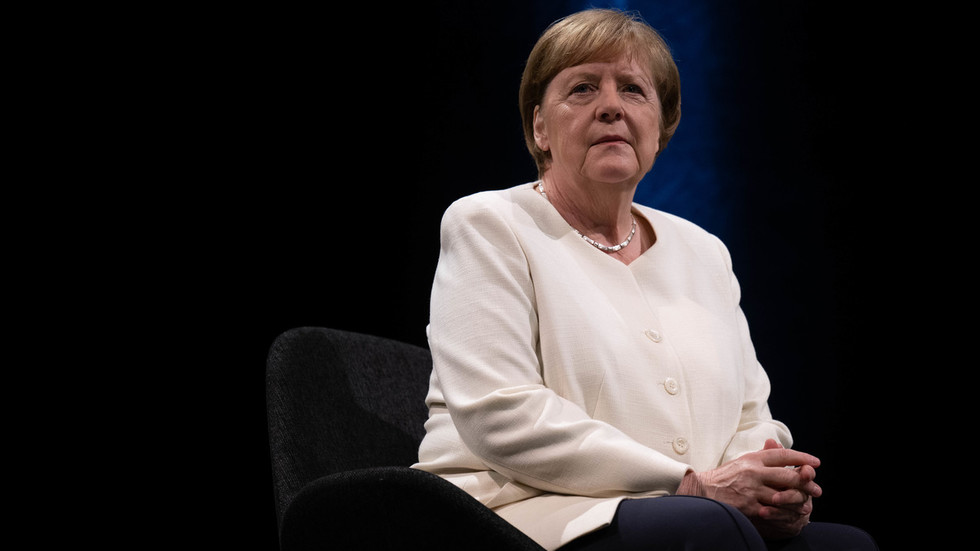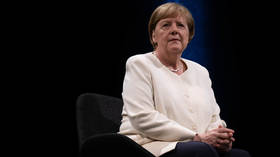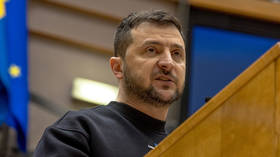
Ex-German chancellor says Minsk accords were struck in good faith, though she’d previously said they aimed to “give Ukraine time”

Former German Chancellor Angela Merkel at a Leipzig Book Fair event on a stage at Schauspiel Leipzig. © Hendrik Schmidt/picture alliance via Getty Images
Angela Merkel, Germany’s Chancellor from 2005 to 2021, claimed this week that she did all she could to prevent the conflict in Ukraine. The veteran politician stands by her efforts to broker the 2014-2015 ceasefire accords, saying they were agreed in good faith. Months prior to this week’s interview, however, she suggested that the accords were merely a ploy to help Ukraine buy time.
In an interview with Die Zeit’s Chief Editor Giovanni di Lorenzo on Saturday, Merkel said that she’d “tried with what was at my disposal to prevent” the current Ukraine conflict. Just because these efforts eventually failed does not mean they were misguided, the ex-chancellor insisted, adding that “diplomacy is a necessity.”
The politician defended the Minsk peace process, which was designed to end fighting and progress talks between Kiev and rebels in Donbass, who were among the Ukrainians who rejected the outcome of the 2014 coup in the capital.
In the interview, Merkel also lamented the fact that, at the time, few European nations other than Germany and France were interested in those diplomatic endeavors.

The ex-chancellor also claimed that the accords had been drawn up in good faith.
However, in an interview published last December in Die Zeit she acknowledged that, in reality, the Minsk protocol had been an “attempt to give Ukraine time,” which it availed of to “become stronger,” as evidenced on the battlefield now.
In late 2022, Merkel said that it was “clear to all of us that the conflict was frozen, that the problem had not been solved, but that gave Ukraine valuable time.”
In this week’s interview, Merkel also recounted how “President Zelensky was very critical of the Minsk agreement, and he had said that since his election campaign.” Despite differences of opinion on the matter she still trusted the Ukrainian head of state, the former German official noted.
According to the ex-chancellor, the broad consensus among Ukrainian politicians was that the Minsk agreement was not popular in the country.
Explaining the need to launch a military operation against Ukraine last February, Russian President Vladimir Putin accused Kiev, among other things, of having failed to honor the terms of the agreement. Under Minsk I and II, Ukraine was supposed to enact constitutional reform and to grant autonomy to the Donetsk and Lugansk regions.




